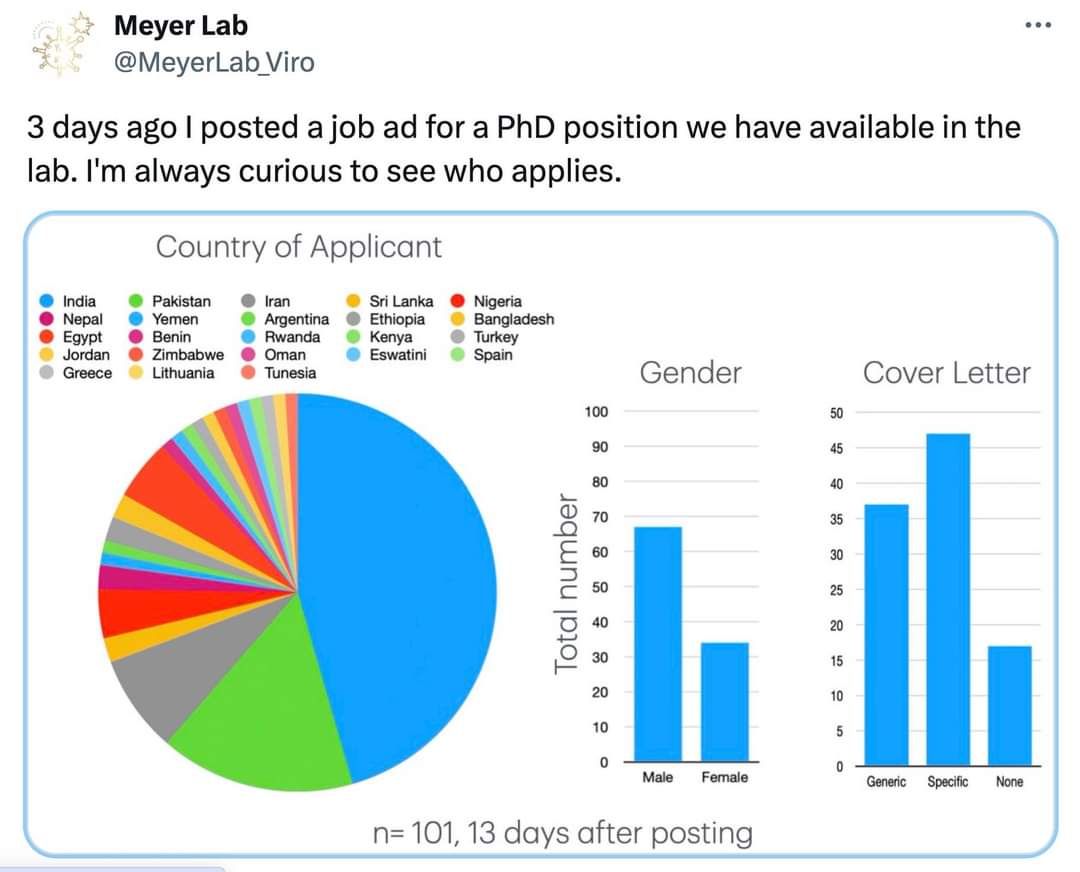Common Reasons for Scholarship Rejections: Are you fed up with receiving rejection emails about being not selected for the scholarship? Are you looking for a Tip to make a successful scholarship application? This advice comes from Prof Meyer Lab who recently shared his experience reviewing 101 applications for a PhD position in his lab. His experience sheds light on why so many applicants often face rejection. Note down these points and make your application according to the recommendation shared by a professor.
Common Reasons for Scholarship Rejections
Here is an image shared by Prof Meyer Lab.

1) Lack of a Position-Specific Cover Letter
Out of these 101, only 47 applicants bothered to write a cover letter specific to the position or lab.
Why It Matters: A position-specific cover letter shows that you’ve done your homework, that you understand the role, and that you’re genuinely interested in this particular position, not just any opportunity that comes your way.
2) Failure to Follow Application Instructions
The Job Ad asked for three things: a CV, a position-specific cover letter, and referees. Yet, 17 applicants didn’t even send a cover letter, and many others sent generic ones.
Why It Matters: If you can’t follow simple instructions in the job ad, it gives the impression that you might not follow instructions on the job either.
3) Lack of Research and Personalization
Many applications appeared to be sent without any serious effort to tailor them to the specific lab or position. This indicates that the applicants likely didn’t take the time to research the lab’s work or how they could fit in.
Why It Matters: Personalization and research show your commitment and your potential to contribute effectively to the lab or organization.
Common Problems & Solutions
1) Problem: Generic Applications
Many students apply for multiple positions with the same generic cover letter and CV.
Take the time to personalize your application for each position. Research the lab or organization, understand what they do, and clearly explain how your experience and skills are a perfect match.
2) Problem: Not Following Instructions
Ignoring specific instructions in the job ad is a common mistake. Carefully read the job posting and make sure to provide exactly what is requested. If they ask for a specific cover letter, write one. If they ask for certain documents, make sure to include them.
3) Problem: Lack of Detail
Many applicants fail to address how their experience fits with the specific role or lab they’re applying to.
Use your cover letter to explain how your past experiences make you a strong candidate for this particular position. Mention specific aspects of the lab’s work that interest you and how you can contribute.
I have prepared some important documents that can help you in preparing your application for the scholarship.
- Best Motivation Letter for Scholarship With Tips
- How to Make a Recommendation Letter for a Scholarship
- Best Scholarship Essay Format | Examples and Templates







